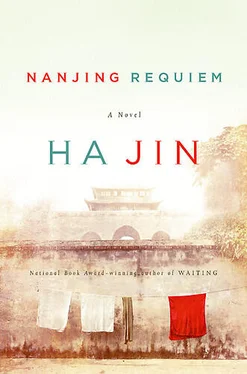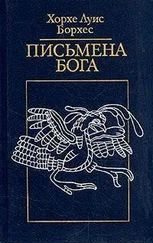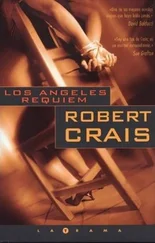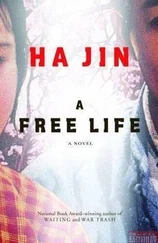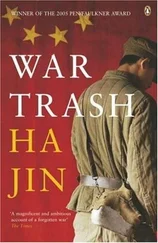Before the fall semester started, Minnie and I decided to visit Yulan. To our horror, the hospital was gone. The building was under construction, encaged in bamboo scaffolding and being converted into a hotel for the military. Minnie asked a foreman what had happened to the patients and the staff of the hospital. The man shook his shaved head and said, “I heard they all left.”
“Do you know where they went?” she said.
“I’ve no clue, ma’am. They all might’ve gone home. You know the Japanese — they change plans every month.”
I tugged at Minnie’s sleeve. “Let’s go.”
Many of the medical personnel had been Japanese and couldn’t possibly repatriate in the midst of the war, not to mention the Chinese patients who no longer had a home to return to.
We left the construction site and stopped at Tianhua Orphanage in hopes that Monica might know something about the disappearance of the hospital, but the nun, paler than ever, had no idea either. In fact, she hadn’t even heard it was gone and kept apologizing. “Don’t blame yourself, please,” Minnie said. She left a box of walnut cookies — intended for Yulan — with Monica and told her to be more careful about her health. The woman looked even more consumptive, with sunken cheeks and feverish eyes; yet she was in good humor, so glad to see us that she couldn’t stop beaming. I was afraid she might not be able to work much longer.
Back on campus, Minnie telephoned Dr. Chu and asked him what had happened to the hospital. “Can you help me find out where the patients are?” she asked.
He agreed to look into it, and Minnie invited him to have tea with us.
Dr. Chu came the next afternoon. He seemed under the weather, his eyes dull and his face drawn to the point of being emaciated. I poured oolong tea for him and placed a dish of small dough twists on the coffee table. He said he had looked into the dissolution of the hospital but didn’t know for sure where all the staff had gone. Seated on an old canvas sofa in the main office, he went on, “They might have merged with other hospitals.”
“How about the patients?” Minnie asked.
“There weren’t many to begin with.”
“I want to know where Yulan is.”
“What can I say?” He sighed and put his teacup down. “I heard they had shipped some patients to Manchuria.”
“Why there?”
“A unit specializing in germ warfare needed human guinea pigs.”
“ ‘Germ warfare’? That’s horrible. Is the place they were sent to like an experiment center?” Minnie asked. That was the first time I’d heard the term “germ warfare.”
“I don’t know much about it,” he replied, “but I’m told there’s a Japanese army unit somewhere in the northeast that uses people for testing bacteria and viruses. They’ve been collecting marutas , human logs, for experiments.”
“So whoever ends up there won’t come out alive?” Minnie asked him.
“I’m sorry. In a way, the sooner Yulan and the other mad girl die, the better for them.”
“That’s an awful thing to say!”
“They were both afflicted with venereal diseases — very severe cases, to my knowledge. The girls were actually kept as sex slaves. What kind of life was that? I’m not like most Chinese who believe that the worst life is better than the best death. If life is insufferable, one had better end it. If I were them, I must say, I’d have killed myself long ago.” He gazed at me as if to see whether I wanted to challenge him. I had to say I agreed.
“But both of them were no longer clearheaded,” said Minnie.
Dr. Chu didn’t respond. He laced his fingers together on his lap and averted his melancholy eyes as though ashamed of what he had said.
Minnie continued, “I have a favor to ask you. Can you find out that unit’s name and its whereabouts?”
“You mean the one doing germ experiments?”
“Yes, please do this for me.”
“I’ll try my best.”
The conversation threw Minnie into a depression. For several days she kept wondering whether she might have been able to rescue Yulan if she had returned sooner from her summer vacation. She believed that what had happened to Yulan from the start was partly due to her negligence. If only she had spent her summer here. She could have returned to her apartment so she wouldn’t have to rub shoulders with Mrs. Dennison every day. Minnie rebuked herself for caring too much about her personal feelings and about losing face. How could she let petty personal disputes stand in the way of more important matters, such as saving a woman’s life and protecting the two schools? She could at least have written to Big Liu or me to stay informed of any development here. She couldn’t escape feeling small-minded. How could she make amends? The more she thought about her faults, the more disappointed she was in herself.
Her laments got on my nerves. However hard I tried to dissuade her from reproaching herself, she wouldn’t stop talking about Yulan and the students we’d lost. I felt Minnie was somewhat obsessed and told her that even if she’d been here, she might not have been able to save Yulan. Why would the Japanese military let an American woman interfere with their plan?
I knew Minnie was close to Big Liu and might have talked to him about these problems as well. He still taught her classical Chinese twice a week. But these days he had his hands full, because Meiyan again wanted to flee Nanjing, either to Sichuan to join the Nationalists or to Yan’an, the Communists’ base in the north. Meiyan hated everything here, even the air, the water, the grass, and the trees, let alone the people. She called Jinling a rathole. She had stopped going to church and had thrown away her Bible, claiming she was convinced that God was indifferent to human suffering. She’d told Liya that she no longer believed in Christianity, which in her opinion tended to cripple people’s will to fight. Big Liu used to have high hopes for his daughter, whose mind was as sharp as a blade, but now she had become his heartache. Worse yet, it was whispered that she’d begun carrying on with Luhai and wouldn’t come home until the small hours. Mrs. Dennison had spoken to Luhai, who promised to stop seeing Meiyan and claimed that there was absolutely nothing going on between them; yet people still saw them sneak off campus together.
ON SEPTEMBER 18, John Allison invited Minnie to the U.S. embassy for tiffin. She asked if she could bring me along, and he welcomed me. When we arrived, Allison was still at a meeting but had us sent into the dining room, which had wide windows, a swirled stucco ceiling, brass revolving fans, and two pots of cacti in the corners. A moment later he joined us.
A few minutes after we had started eating creamed spinach and macaroni mixed with seafood, the host opened his briefcase, took out a small brocade box, and placed it in front of Minnie. “I’m supposed to present you with this,” Allison said, and spread his palm toward it, a chased ring on his fourth finger.
“For me?” she asked.
“Yes. Open it.”
She did. Inside the box’s silk interior, a gold medallion was perched like a sunflower, its center inlaid with lambent blue jade. “How many of us got a medal like this?” she asked Allison, pointing at the gold corolla.
“Only you and John Rabe, the Living Buddha.”
“I wish Holly Thornton got one too.”
Allison grinned, revealing his strong teeth. “Maybe Holly will be among the next batch of recipients. To my mind, Lewis Smythe also deserves such an award.”
“John Magee should get one too,” Minnie added.
I picked up the medallion, turned it over, and saw Minnie’s name engraved on its back. Together with the medal was a certificate inside a leather-covered booklet. I opened it and saw the citation saying that the Chinese Nationalist government had awarded her this prize for saving ten thousand lives in Nanjing. “It’s gorgeous,” I said.
Читать дальше
